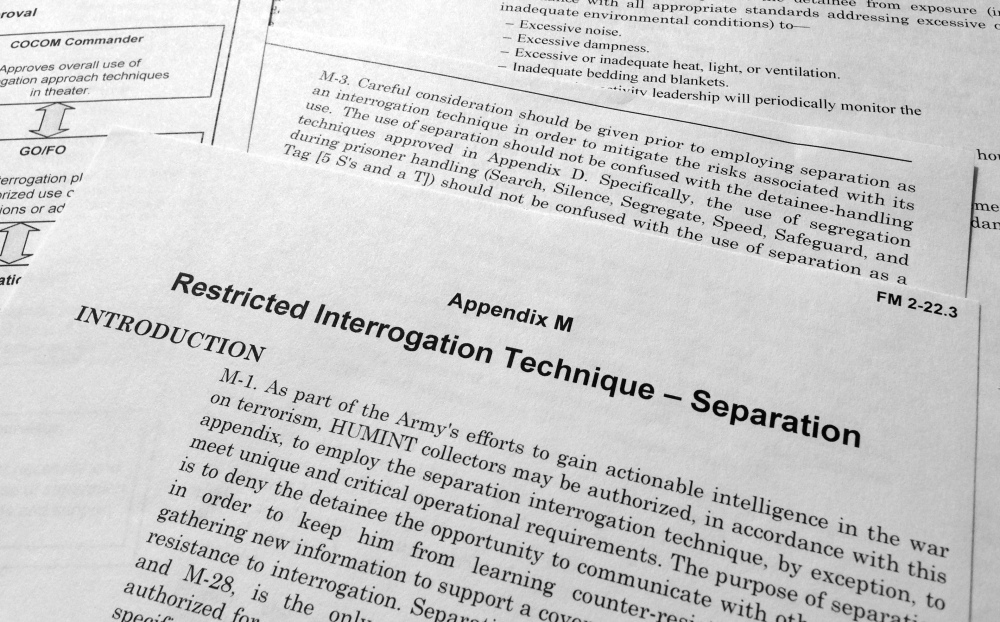WASHINGTON — A little-known appendix to the Army Field Manual, the government rulebook for interrogations that bans the harsh practices used after the Sept. 11 attacks, still allows sleep deprivation and other sensory techniques that some say amount to a loophole to the U.S. ban on torture.
Interrogation professionals and international human rights groups want to see the entire 10-page Appendix M axed from the Army Field Manual, which is undergoing a congressionally mandated review.
U.S. officials insist that Appendix M doesn’t condone ill treatment of detainees, and that all parts of the manual must be applied in ways that ensure detainees are treated humanely.
“We have been asking for changes to the Army Field Manual and Appendix M in particular for years now,” said Raha Wala, senior counsel for defense and intelligence at Human Rights First. “There hasn’t been momentum. I now sense that for the first time in years, there is a real interest in looking at it.”
Their objections come at the same time that Republican presidential frontrunner Donald Trump wants the U.S. to bring back torture, including waterboarding, a practice that simulates drowning.
“They have no rules. They have no regulations. They chop off heads. They drown 40, 50, 60 people at a time in big steel cages, pull them up an hour later, everyone dead. And we’re working on a different set of parameters,” he said in Thursday’s presidential debate, explaining why he favors torturing Islamic State captives to get information.
Mark Fallon, who has spent more than 30 years working in federal law enforcement and counterintelligence, said that domestic and international law forbids waterboarding and other so-called “enhanced” interrogation techniques.
“I don’t think there’s much validity to Appendix M,” Fallon said. “I think it can open the door to the types of abuses we have seen before.”
Fallon leads the research committee of the High-Value Detainee Interrogation Group, a team of interrogators from the FBI, Defense Department and intelligence agencies that is deployed to gather intelligence from violent extremists in the U.S. and overseas.
Fallon was among more than two dozen former national security, law enforcement, intelligence and interrogation professionals who sent a letter last fall to all of the presidential candidates, urging them to reject torture and cruel treatment.
Some former CIA officials, however, insist that waterboarding and other harsh methods have yielded vital intelligence.
Send questions/comments to the editors.



Success. Please wait for the page to reload. If the page does not reload within 5 seconds, please refresh the page.
Enter your email and password to access comments.
Hi, to comment on stories you must . This profile is in addition to your subscription and website login.
Already have a commenting profile? .
Invalid username/password.
Please check your email to confirm and complete your registration.
Only subscribers are eligible to post comments. Please subscribe or login first for digital access. Here’s why.
Use the form below to reset your password. When you've submitted your account email, we will send an email with a reset code.